高垣大輔
@daisuketakagaki さんのツイート。
――報道特集でチラ見したけど、ローマ法王とロシア正教会の大司教のトップ会談が1054年の分裂以来って、結構なニュースじゃないのかな?しかも、仲介がキューバ。〔18:11 - 2016年2月13日 〕――
1054年の分裂以来ってことで、
会談は、
今年で962年ぶりなようだ
(白石草@hamemenさんのツイート〔19:26 - 2016年2月13日 〕参照 )。
〔資料〕
「Unity call as Pope Francis holds historic talks with Russian Orthodox Patriarch」
BBC(日本時間:2016年2月13日)
☆ 記事URL:http://www.bbc.com/news/world-latin-america-35565085

Pope Francis and Russian Orthodox Patriarch Kirill have called for restored Christian unity between the two churches at historic talks in Cuba.
The meeting was the first between a Pope and a Russian Church head since the Western and Eastern branches of Christianity split in the 11th Century.
In a joint declaration, they also urged the world to protect Christians from persecution in the Middle East.
The Pope has now arrived in Mexico for a five-day visit.
A crowd of 300,000 braved the cold in Mexico City to welcome him to the country which has the world's second largest Catholic population.
The Pope was greeted at the airport by President Enrique Pena Nieto.
'Churches ravaged'
The two-hour talks on Friday between Pope Francis and Patriarch Kirill were held at Havana airport.
Patriarch Kirill goes on to Brazil and Paraguay.
The pair embraced and kissed each other at the start of their talks.
"I'm happy to greet you, dear brother," the Russian Church leader said.
"Finally," the pontiff said.
At a news conference after the meeting, Kirill said the discussions were "open" and "brotherly", while Francis described them as "very sincere".
"We hope our meeting contributes to the re-establishment of this unity wished for by God," their joint declaration said.
The document called on the world community to defend Christians, saying that "in many countries of the Middle East and North Africa whole families, villages and cities of our brothers and sisters in Christ are being completely exterminated."
"Their churches are being barbarously ravaged and looted, their sacred objects profaned, their monuments destroyed."
At the scene: BBC's Oleg Boldyrev
In the swirl of Vatican officials and security dressed in black, Pope Francis was a lone figure in white on the heated tarmac of Havana airport as he arrived to do his part in healing one of the longest religious disputes.
Russian Patriarch Kirill had arrived shortly before. The venue was a compromise - it would be impossible to have the first such meeting in the Vatican or Moscow, and Catholic Cuba is still in the Russian sphere of influence.
Back home the Patriarch has to overcome the anger of conservatives who still consider Catholicism a deviation from true Christianity. Clearly, this is a criticism he feels safe to ignore now.
Minutes later, the Pope and the black-robed Patriarch were holding each other by the shoulders and smiling warmly. Then the leaders of Catholics and Russian Orthodox Christians sat down. It was almost business as usual.
Russian state TV described the talks between the two men as the "meeting of the millennium".
In purely symbolic terms, this is an extraordinary moment, but it is perhaps even more significant in terms of Church diplomacy, the BBC's Will Grant in Havana says.
Patriarch Kirill has been the head of the Russian Orthodox Church since February 2009, while Pope Francis took up his role in March 2013.
The Roman Catholic Church has more than a billion members worldwide, while the Russian Orthodox Church numbers about 165 million.
The Russian Church is the largest and most powerful in the Orthodox faith, which is made up of a number of separate churches.
The encounter in Havana is not expected to lead to any immediate rapprochement between the Eastern and Western Churches.
Ahead of the meeting, the foreign policy chief of the Russian Orthodox Church, Metropolitan Illarion, said there were still differences between the two churches, in particular on western Ukraine.
One particular issue is the Ukrainian Greek Catholic Church, which follows eastern church rites but answers to the Holy See.
The Russian Orthodox Church has considered western Ukraine its traditional territory, resenting papal influence there.
Jump media player
Media player help
@daisuketakagaki さんのツイート。
――報道特集でチラ見したけど、ローマ法王とロシア正教会の大司教のトップ会談が1054年の分裂以来って、結構なニュースじゃないのかな?しかも、仲介がキューバ。〔18:11 - 2016年2月13日 〕――
1054年の分裂以来ってことで、
会談は、
今年で962年ぶりなようだ
(白石草@hamemenさんのツイート〔19:26 - 2016年2月13日 〕参照 )。
〔資料〕
「Unity call as Pope Francis holds historic talks with Russian Orthodox Patriarch」
BBC(日本時間:2016年2月13日)
☆ 記事URL:http://www.bbc.com/news/world-latin-america-35565085

Pope Francis and Russian Orthodox Patriarch Kirill have called for restored Christian unity between the two churches at historic talks in Cuba.
The meeting was the first between a Pope and a Russian Church head since the Western and Eastern branches of Christianity split in the 11th Century.
In a joint declaration, they also urged the world to protect Christians from persecution in the Middle East.
The Pope has now arrived in Mexico for a five-day visit.
A crowd of 300,000 braved the cold in Mexico City to welcome him to the country which has the world's second largest Catholic population.
The Pope was greeted at the airport by President Enrique Pena Nieto.
'Churches ravaged'
The two-hour talks on Friday between Pope Francis and Patriarch Kirill were held at Havana airport.
Patriarch Kirill goes on to Brazil and Paraguay.
The pair embraced and kissed each other at the start of their talks.
"I'm happy to greet you, dear brother," the Russian Church leader said.
"Finally," the pontiff said.
At a news conference after the meeting, Kirill said the discussions were "open" and "brotherly", while Francis described them as "very sincere".
"We hope our meeting contributes to the re-establishment of this unity wished for by God," their joint declaration said.
The document called on the world community to defend Christians, saying that "in many countries of the Middle East and North Africa whole families, villages and cities of our brothers and sisters in Christ are being completely exterminated."
"Their churches are being barbarously ravaged and looted, their sacred objects profaned, their monuments destroyed."
At the scene: BBC's Oleg Boldyrev
In the swirl of Vatican officials and security dressed in black, Pope Francis was a lone figure in white on the heated tarmac of Havana airport as he arrived to do his part in healing one of the longest religious disputes.
Russian Patriarch Kirill had arrived shortly before. The venue was a compromise - it would be impossible to have the first such meeting in the Vatican or Moscow, and Catholic Cuba is still in the Russian sphere of influence.
Back home the Patriarch has to overcome the anger of conservatives who still consider Catholicism a deviation from true Christianity. Clearly, this is a criticism he feels safe to ignore now.
Minutes later, the Pope and the black-robed Patriarch were holding each other by the shoulders and smiling warmly. Then the leaders of Catholics and Russian Orthodox Christians sat down. It was almost business as usual.
Russian state TV described the talks between the two men as the "meeting of the millennium".
In purely symbolic terms, this is an extraordinary moment, but it is perhaps even more significant in terms of Church diplomacy, the BBC's Will Grant in Havana says.
Patriarch Kirill has been the head of the Russian Orthodox Church since February 2009, while Pope Francis took up his role in March 2013.
The Roman Catholic Church has more than a billion members worldwide, while the Russian Orthodox Church numbers about 165 million.
The Russian Church is the largest and most powerful in the Orthodox faith, which is made up of a number of separate churches.
The encounter in Havana is not expected to lead to any immediate rapprochement between the Eastern and Western Churches.
Ahead of the meeting, the foreign policy chief of the Russian Orthodox Church, Metropolitan Illarion, said there were still differences between the two churches, in particular on western Ukraine.
One particular issue is the Ukrainian Greek Catholic Church, which follows eastern church rites but answers to the Holy See.
The Russian Orthodox Church has considered western Ukraine its traditional territory, resenting papal influence there.
Jump media player
Media player help










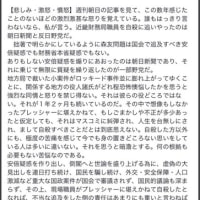
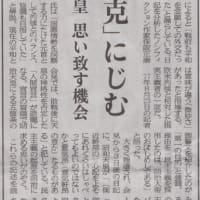
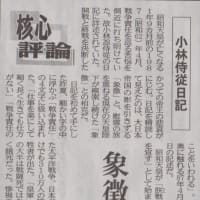
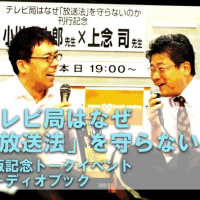
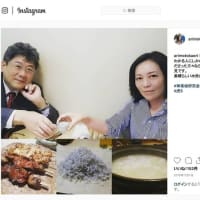
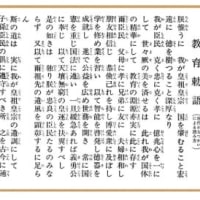



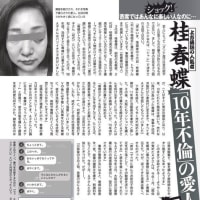
※コメント投稿者のブログIDはブログ作成者のみに通知されます